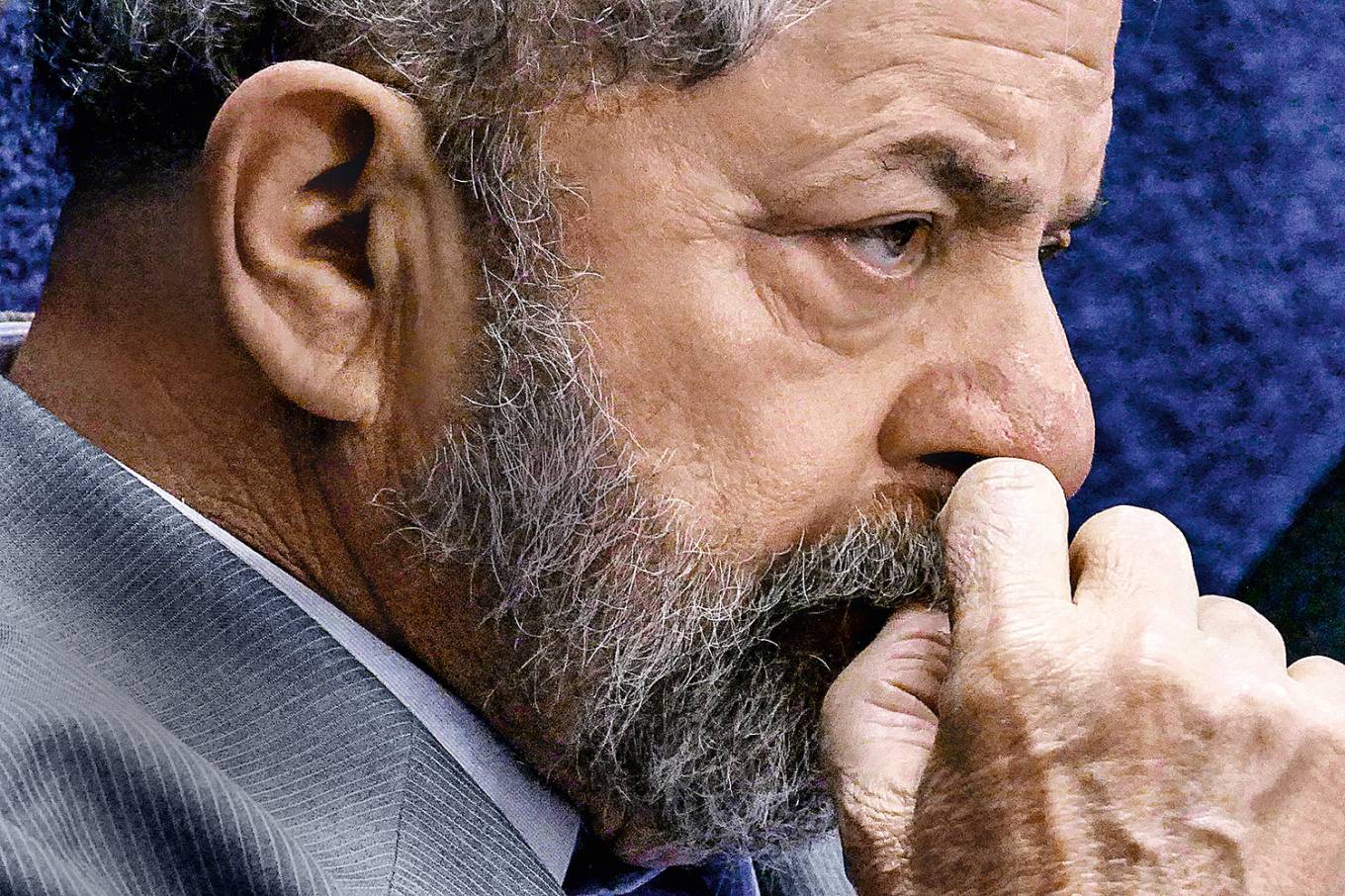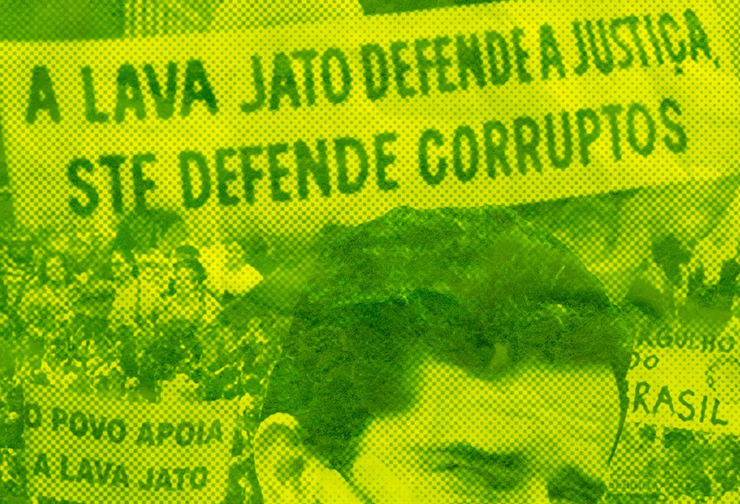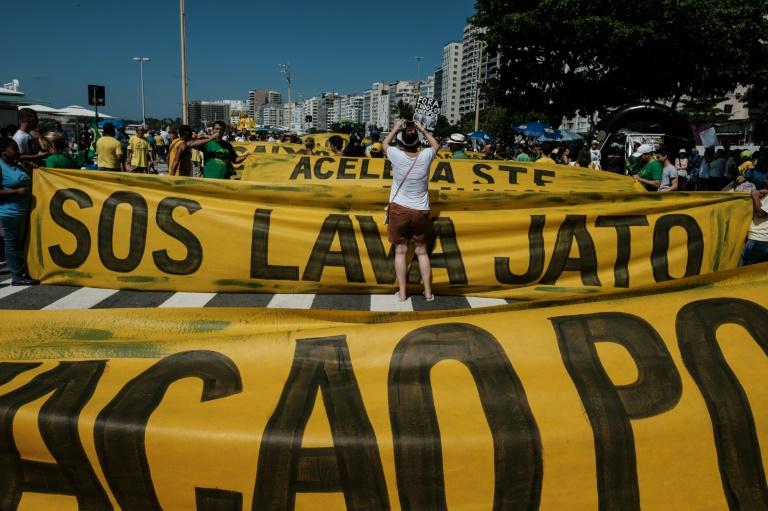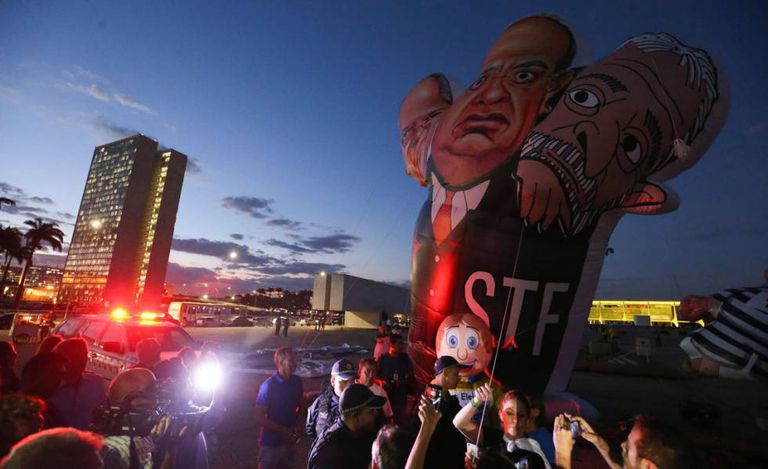
By Daniel Lara Farías*
(Opinion) When Euzenando Azevedo sat in front of a camera to confess everything he did as head of Odebrecht in Venezuela during his years in office, those of us who listened discovered the full extent of the scheme imposed through the company. .
It was not just a simple denunciation to which the head of the company took refuge, but a real revelation that confirmed the corrupt roots of the governments associated with the São Paulo Forum, with Lula da Silva as the head of the rotten strategy.
Also Read: Check out our Lava Jato coverage
Azevedo is not the biggest or the main of those involved, but he is the most prominent.

The reason is fundamental: Venezuela was the country in the world where Odebrecht had the most contracts and the largest amounts.
During the years of Chavez’s reign, with oil over a hundred dollars a barrel, the company imposed itself as the maximum contractor for Chavista state affairs, without any bidding or competition.
From the military manu, with the permanent justification of “state interest”, the company was the official constructor of public works, of any dimension and throughout the national territory.
From this point of view we are already talking about corruption. Abuse of dominant position, influence peddling and bribery.
The selection of the company did not respond to its existing capacities, but to the political decision made by Chávez following the instructions of Lula da Silva.
There was neither solidarity with a company nor political passion.
The two socialist leaders did not want to benefit in any way a private company.
The game was different.

What was sought and achieved was the use of Odebrecht as a “B box” for the financing of political activities in the region, which would allow the rise to power of similar regimes.
A PERVERSE MECHANISM
The dynamic was corrupt and corrupt by any standard. In principle, Odebrecht was imposed as a contractor, to the detriment of other companies.
Thus began the irregularity from the public sector to the private actions, since in order to guarantee the silence of the local companies damaged by Odebrecht, the giant Brazilian corporation bought the locals by subcontracting them to work.
In this way, Odebrecht guaranteed itself a contract, which it would charge at low prices, while the work was actually carried out by companies that had failed to win the government’s favor for awarding the contract.
How did this scheme work and how did one company, subcontracting to another, benefit from a government contract that normally takes a long time to pay?

Logically, political collusion allowed this and more.
Because in awarding the contract, premium and punctual payment were guaranteed. The overpricing was used to get the work done, pay contractors, bribe politicians and enrich Odebrecht along the way.
Cooperation and silence were required. And everything could be bought.
Therefore, the most difficult part of the issue was achieved, which was the guarantee of the awarding of contracts by the governments and the silence of the opposition.
It was necessary to stop any investigation, and to guarantee the stability of contracts and the continuity of benefits in the face of any change of government.
The solution was simple: illegal financing of the ruling party and opposition parties was necessary.
To buy silence with money from premiums, to grow unstoppably throughout the region and to achieve what was essential: governments aligned with the São Paulo model.
Brazil, Venezuela, Dominican Republic, Argentina, Panama, Colombia, Guatemala, Peru, Ecuador and Mexico stand out as part of the scheme.

The same rule followed in all these countries: a corrupt government awarding overpriced contracts to a company that distributed money to government and opposition politicians to guarantee impunity.
In many cases, the works were never completed. However, the payments were made.
THE SÃO PAULO FORUM AS A GUIDE
The plan of some was to get rich, but the master plan, the main one, was to guarantee political control of the governments of the region.
The perversity of this plan is great, because under the guise of socialism for the redemption of the poor, public money was used to finance projects that were enemies of democracy.
Odebrecht cannot be explained without Lula da Silva, nor can Lula da Silva be explained without the São Paulo Forum.
Nor can the expansion of Chavism and its impunity in multilateral forums be explained without the corruption scheme that allowed Chavez to block any initiative in the OAS or the UN against him, even when the governing parties appeared as enemies on paper.
![Take them all out [the left]. (Photo reproduction online)](https://www.riotimesonline.com/wp-content/uploads/2022/09/Lava-Jato.jpg)
Examining the case shows the damage caused. Lula da Silva and his family fell as beneficiaries of the scheme.
Lula da Silva’s successor, Dilma Rousseff, was ousted amid an impeachment trial that left Maurice Temer in power, who was also later tried for corruption.
Half of Peru’s political class fell, with four presidents implicated, one deposed, Pedro Pablo Kuczynski, another indicted along with his wife, Ollanta Humala, one under house arrest in the US awaiting extradition, Alejandro Toledo and the most tragic of all. cases, that of Alan García Pérez, who committed suicide when the police arrived to arrest him at his home as a defendant in the case.
In Panama, the implication of Martinelli and his family went to court, with relative success for the politician who now aspires to return to power.
In Ecuador, on the other hand, the case left Rafael Correa and some of his associates on the run.
In Colombia, there was a final sentence against the close associates of Juan Manuel Santos. In the rest of the countries, there was an investigation, trial and punishment.
With only one exception: Venezuela.

THE CASE OF VENEZUELA
Of course, in the realm of impunity guaranteed by Chavismo, there has been neither trial nor investigation in this country.
It may be more of the same, knowing the characteristics of Chavismo, but there are details of greater importance in all of this.
First of all, Venezuela was the country with the second largest number of Odebrecht operations, after Brazil.
Subsequently, the contracted works in Venezuela were part of the regime’s propaganda strategy, which presented the pharaonic proposals as part of the country’s development, which it never was.
Most of the works have not been done but have been paid for. No one reported. And therein lies the success of the scheme.

A real and verifiable success, because despite the scandalous figures and evidence of unfinished works, there was no opposition to denounce it. Why?
Because the payments and funding for that silent opposition was effective. The basic evidence is in the statement of Azevedo, the company’s senior executive in Venezuela.
In the same confession, he has shown that he actually financed Maduro’s campaign in 2013 with 35 million dollars, but at the same time he financed the campaign of the opposition candidate Henrique Capriles with more than 15 million dollars.
Likewise, he had already financed Capriles’ previous campaign against Chavez in 2012, and Capriles himself thanked him for his funding in a private meeting the two had in 2013 at the former opposition candidate’s residence, according to the executive’s account.
The same with other political leaders, both from Chavismo and the opposition. Silence guaranteed.
If we look closely at this matter, then it is clear that the Chavista system with a criminal regime and a false opposition was possible under the corrupt scheme that, among other things, gave Odebrecht.
But the practice is the same; in Venezuela, it is the law.
Using the power of the state to give benefits to businessmen, who in return must finance the regime’s campaigns and the lifestyle of its captains and at the same time guarantee the existence of an “opposition” that serves the system to save the configuration.
An almost perfect game, where socialism is imposed, expanded and impunity guaranteed with the money of corruption.
The problem is that we already know it.
That is why, despite the convictions of innocence, Lula da Silva and his followers are condemned by history as the heads of the most harmful mechanism of corruption that could have been created, to guarantee the expansion of the São Paulo Forum.
And to guarantee that until the end of time, Ibero-American socialism will be synonymous with corruption and impunity.
*Journalist by profession. Although his academic background includes studies at the School of International Studies of the Universidad Central de Venezuela, where he graduated in 2002, he has devoted the last decade to intensive media activity in his country and abroad.
Committed to politics, first as a social democratic activist and then as a renegade of all leftist tendencies, he has been a member of the Venezuelan media for the past ten years.
Post views:
41



